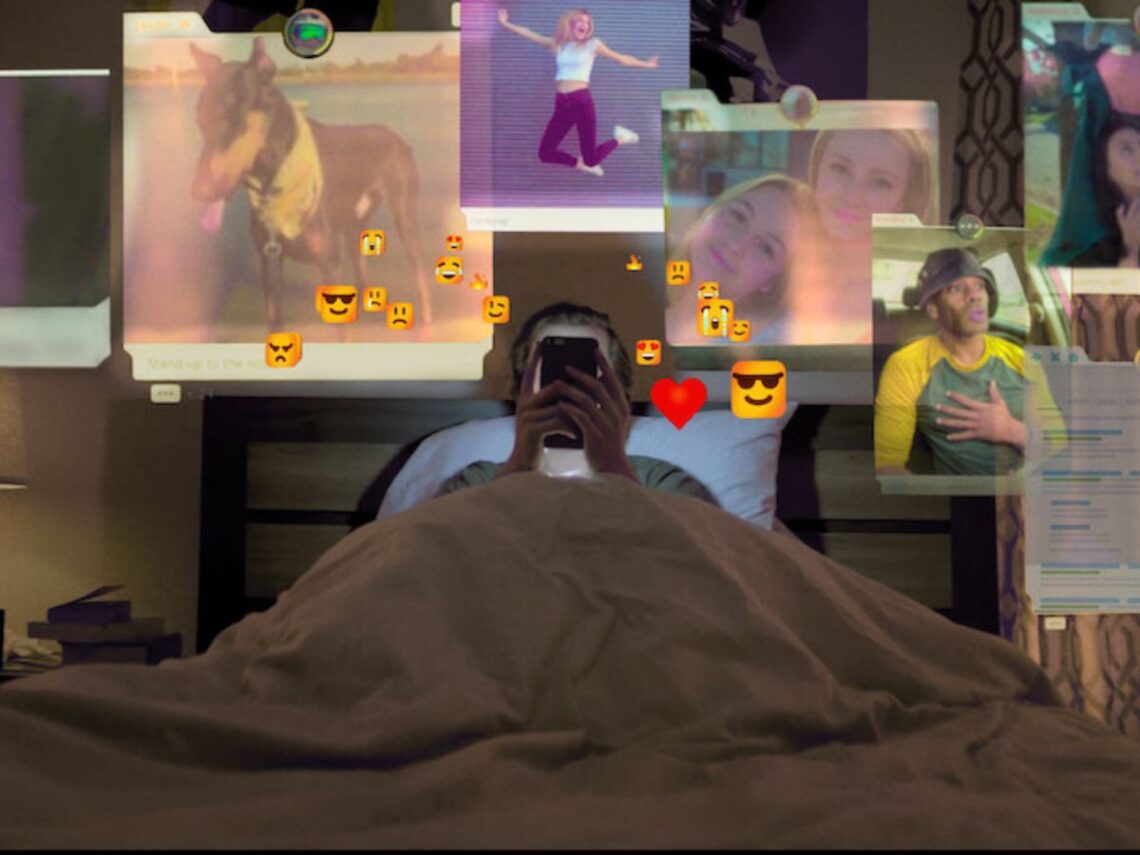
The documentary that predicted your worst scrolling habits is still on Netflix
Have you ever doomscrolled your way through a Sunday night and convinced yourself your brain is melting while you double-tap another meme about how your brain is melting? We are just kidding; nobody does that on a Sunday night. Because you do it every day. If this is the case, then The Social Dilemma was made for you. Actually, correction: it was made about you. And what’s worse? This Netflix documentary called you out years ago.
Released in 2020, this Netflix documentary did not just warn us about what was coming. It saw the future and handed it to us in a glitchy, overstimulated scroll. Now, five years later, we are living in the exact digital wasteland it predicted, big time. It showed where our attention spans are fried, our timelines are curated chaos, and half our opinions are shaped by whatever video gets served up next.
The premise is simple but terrifying. The documentary brings together ex-employees from tech giants like Google, Facebook, Instagram and Twitter. These are the very people who built the systems we now live inside. And with haunting honesty, they reveal how our feeds were never designed to keep us informed. They were designed to keep us scrolling.
And that is the core of it. These platforms aren’t neutral. They are machines that feed on our attention. Every scroll, every pause, every like… it is data. And that data is used to give you more of what will keep you hooked. Not what’s true, not what’s healthy. Just what keeps you on the app. And as The Social Dilemma explains, once these algorithms learnt how to hold us, they learnt how to control us.
The algorithm isn’t broken, but working exactly as planned
One of the most shocking parts of this Netflix film is how clearly it lays out the emotional consequences. It is not just that we are addicted. It is that we are being shaped. The rise in depression and anxiety in teens. The drop in self-worth. The constant comparison, the brainrot, the fractured sense of reality. It has all been engineered. And it’s not even a glitch, it’s the business model.
Remember when TikTok first hit and we laughed about how no one could sit through a two-minute video anymore? Now seven seconds feels long. Our brains are being taught to crave microbursts of dopamine. And the more we accept that, the harder it gets to read, think, focus, or even just sit with ourselves. The Social Dilemma doesn’t just point this out it screams it in your face, then shows you exactly how it happens.
The film cleverly blends interviews with scripted scenes, showing a fictional teenager falling deeper into the algorithm’s grip. You watch his personality shift, his sleep decline, and his grip on reality blur, and it doesn’t feel exaggerated. It feels like a regular Thursday.
Even the term “brainrot”, that vague, meme-y way we describe feeling detached and overstimulated, was quietly explained in this film before it became daily vocabulary. We just did not take it seriously. Because who wants to admit that the thing comforting them (the scroll) is also the thing breaking them?
Watching it now feels different as you are living it
Rewatching it in 2025 feels different. A bit scarier. Because now, you are not just hearing about it, you are seeing it everywhere. You watch people talk about algorithmic manipulation, and you can’t help but think about how your feed literally knew you were sad before you did.
The irony, of course, is that most people will hear about The Social Dilemma… through a social media post. But maybe that is the point. The system is not hiding. It’s right there, blinking, buzzing, baiting. And this film is still your best shot at understanding what it’s really doing.
So if you have made it to the end of this article without dropping in between, congratulations, there is still hope you can get out of the cycle of doomscrolling. Also, it is time you watch this documentary. Or rewatch it. The Social Dilemma was not just a warning. It was a spoiler on Netflix. And it got every single thing right.